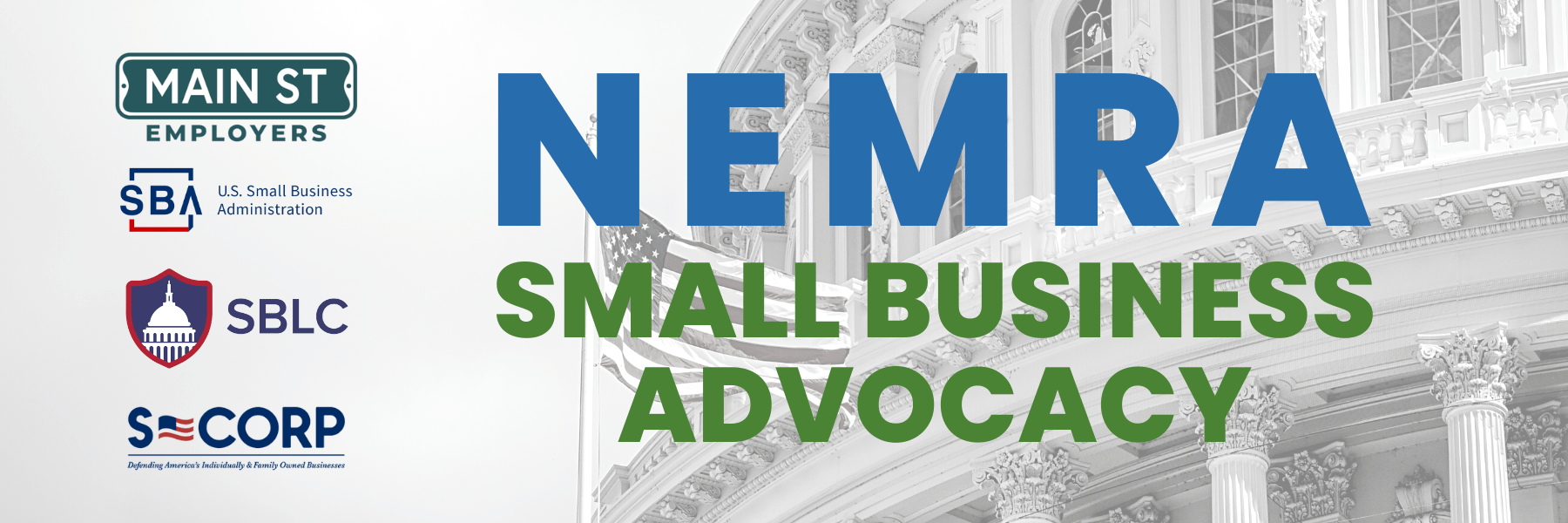In This SBLC Update
- Senate vote tomorrow on H.R. 7024, the Tax Relief for American Families and Workers
H.R. 7024
You’ll recall that on Jan. 31 the House passed H.R. 7024, the “Tax Relief for American Families and Workers Act,” by a vote of 357-70, with 47 Republicans and 23 Democrats voting against it. The House passed the package with wide bipartisan support after months-long negotiations between House Ways and Means Chairman Jason Smith (R-MO) and Senate Finance Chairman Ron Wyden (D-OR). In October, Barnes & Thornburg brokered meetings for the SBLC, about the bill, with senior staff to Sen. Young as well as senior tax staff for the Democratic and Republican leaders of the Senate Finance Committee during the SBLC’s Capitol Hill fly-in. B&T lobbyists have remained in dialogue with these offices about the importance of the small business tax provision of H.R. 7024.
Monday evening (July 29), Senate Majority Leader Chuck Schumer (D-NY) filed for cloture on the motion to proceed to H.R. 7024, setting up a procedural vote tomorrow afternoon, August 1st, that would need 60 votes to advance.
The bill is not expected to receive the 60 votes necessary to advance. Tomorrow’s procedural vote will not likely fall neatly along partisan lines. While many in the Republican Conference remain opposed, Senators Markwayne Mullin (R-OK) and Josh Hawley (R-MO) have signaled their support for the bill, citing support for the business tax and childcare provisions respectively. Additionally, several progressive Democrats, including Senator Elizabeth Warren, have yet to signal their support, citing concerns over the business provisions.
Many Republican leaders are opposed to the proposed child tax credit changes. Senate Finance Ranking Member Mike Crapo (R-ID) has urged Republicans to vote against the bill and wait until next year when Republicans hope they will have control of Congress and the White House. Today, Senator Todd Young (R-IN) was quoted as saying, “Substantively, I’ve been supportive of that package for a long time. Clearly, Sen. Schumer has sat on it for political purposes and is now bringing it to the floor in furtherance of those purposes. So that may impact my vote.”
Why is this bill coming up for a Senate vote now after months of delay? Democrats are hoping to make a political point about their support for the child tax credit in an election year while noting that most Senate Republicans will vote to block the package. In recent days the Child Tax Credit has also popped up as an issue in the presidential race given Senator and Republican Vice Presidential candidate J.D. Vance (ROH)’s comments regarding pro-family policies.
Today Sen. Schumer confirmed that while the bill is not expected to advance, a major motivation for holding the vote was the plight of his most vulnerable incumbents, regardless of the outcome. He stated, “Our 2024-ers were very excited about having a vote on this bill — win or lose. They’d rather win, we’d all rather win. But even losing is a benefit. I’m not gonna shy away and not [consider it on the floor] because we can’t do it.”
H.R. 7024 contains the following provisions supporting small business research and development, interest, and capital expensing:
Research & Development: The research and development tax credit allows businesses to deduct the cost of certain research and experimental expenses, such as researcher pay and facility costs. The 2017 Tax Cuts and Jobs Act required companies, beginning in tax year 2022, to deduct domestic R&D expenses over five years, or over 15 years for research conducted outside of the US, rather than in the year incurred. The measure would reverse the change and allow businesses to immediately deduct the cost of their domestic research or experimental expenses in the year paid or incurred for tax years 2022 through 2025. The requirements for foreign R&D expenses wouldn’t be modified. Deductions would be allowed for software development expenses and would be prohibited for property acquisitions or oil and gas exploration.
Business Interest Expenses: Prior to the 2017 tax law, businesses were allowed to deduct interest paid or accrued on a valid debt in a tax year. The overhaul limited the deduction to be 30% of a taxpayer’s “adjusted taxable income” (ATI), with some exceptions. The measure would allow businesses to calculate their ATI without including deductions for depreciation, amortization, and depletion for tax years 2022 through 2025.
Bonus Depreciation: Bonus depreciation previously allowed businesses to immediately deduct some of the costs of qualifying depreciable property, such as equipment. The 2017 tax law modified the 100% bonus depreciation rate to decrease by 20 percentage points annually beginning in 2023 until it phases out after 2026. The measure would restore the 100% bonus depreciation for certain property placed in service in 2023 through 2025, for property with a longer production period placed in service in 2023 through 2026, and for certain plants that bear fruits and nuts in 2023 through 2025.
Payments Reporting: Under current law, businesses are required to report information on tax forms for payments of at least $600 executed by an independent contractor. The measure would generally increase the reporting threshold on 1099-NEC and 1099-MISC forms for such payments to at least $1,000 beginning in calendar year 2024. The reporting threshold would be adjusted for inflation beginning in 2025.



